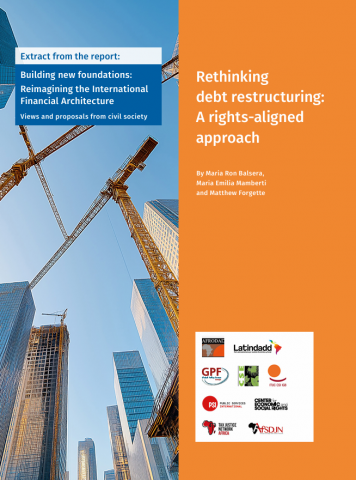
By Maria Ron Balsera, Maria Emilia Mamberti and Matthew Forgette
The global debt crisis has reached unprecedented levels with a disproportionate impact on developing countries, which exacerbates inequality and hinders social progress. Numerous attempts at debt restructurings have failed, perpetuating cycles of unsustainable debt. The absence of a coherent international legal framework further complicates these issues, leaving negotiations inequitable and opaque. In this chapter, we propose a transformative approach to debt restructuring reform that integrates soft law principles – such as transparency and sovereignty – with an independent statutory mechanism under the United Nations. Such reforms not only align with human rights standards but also promote fiscal justice by ensuring governments prioritize social spending over debt servicing. By addressing systemic flaws, the proposed reforms aim to establish a fair and sustainable global financial architecture that respects and realizes human rights while fostering equitable development worldwide.
